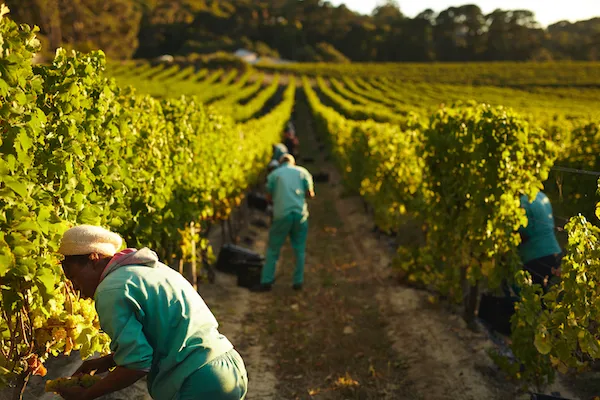This week’s topic for the PMA Virtual Town Hall was workforce and talent management. Panelists discussed how the challenges presented by COVID-19 have impacted labor management practices across the industry and which of the new ways of working might last beyond the crisis period.
There were three main areas represented in the discussion: the fields, the offices, and the stores. In each of these areas, employee safety is the first and foremost concern. In states like California, peak berry season is hitting now and will continue throughout the coming weeks. This means that there will be thousands of pickers needed in the fields, and each of these people needs to be kept safe while they are doing their work. Fortunately, growers do already have a lot of food safety programs to build on, but companies will have to take extra measures to ensure that distance is kept, not only on the fields but off them too – for example, workers can’t drive to work together anymore.

Protection through careful planning and creating space
Within offices and warehouses, there are many precautions taken to ensure the cleanliness and safety of the space. Precautions such as open doors, extra hand sanitizers and cleaning wipes help prevent unnecessary surface contact and help keep the surfaces clean. Many companies have also reorganized their offices so that they can more easily accommodate social distancing guidelines, such as by removing desks and chairs to create additional space.
Deliveries undergo careful planning so that contactless drop-off is made possible, and drivers are often provided with gloves and masks for protection. This is especially important for drivers who make deliveries to medical facilities, as they are entering high-risk zones.
In stores, retailers have installed plexiglass dividers and placed tape on the floors to remind customers of the distance they are supposed to keep. As the panic-buying spreads throughout different regions, retailers need to put security measures in place that help keep the customers spaced out and safe.
Challenges for sales departments: No face-to-face interactions
For sales departments in companies, there is another challenge: how to build and maintain customer relationships when face-to-face interaction isn’t safe. Companies have halted the visiting of customers, and many relationship-building and networking events have had to be cancelled due to the pandemic. Companies have to find new and innovative ways of connecting with their customers within the limitations that are present in the country today.
It’s a marathon
Most panelists agreed that the return to ‘normal’ is going to be a slow, long-term process. It isn’t a light-switch but rather it is a marathon. Ideas such as bringing in the employees in different shifts to prevent overcrowding of spaces were brought up. Companies have set up specific teams that are working on the logistics of returning back to work, to find ways that make the process as efficient and as safe as possible.
